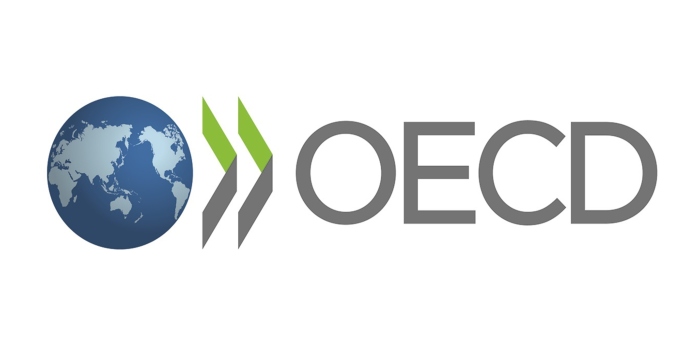
01/12/2021 –
Watch the live webcast of the press conference
The global recovery is continuing but its momentum has eased and is becoming increasingly imbalanced according to the OECD’s latest Economic Outlook. The failure to ensure rapid and effective vaccination everywhere is proving costly with uncertainty remaining high due to the continued emergence of new variants of the virus.
Output in most OECD countries has now surpassed where it was in late-2019 and is gradually returning to the path expected before the pandemic. However, lower-income economies, particularly ones where vaccination rates against COVID-19 are still low, are at risk of being left behind.
The Outlook projects a rebound in global economic growth to 5.6% this year and 4.5% in 2022, before settling back to 3.2% in 2023, close to the rates seen prior to the pandemic.
The strong pick-up in activity seen earlier this year is losing momentum in many advanced economies. A surge in demand for goods since economies reopened, and the failure of supply to keep pace, have generated bottlenecks in production chains. Labour shortages, pandemic-related closures, rising energy and commodity prices, and a scarcity of some key materials are all holding back growth and adding to cost pressures. Inflation has increased significantly in some regions, early in this recovery phase.
Alongside cost pressures from manufacturing supply bottlenecks and food price increases, imbalances in the energy market are a key factor driving up inflation in all economies. Gas prices have risen sharply, notably in Europe, and risks are high, with storage levels around 28% lower than they would normally be at this time of the year. Rising food and energy costs are inevitably hitting low-income households the hardest.
Inflationary pressures are proving stronger and more persistent than expected a few months ago. Consumer price inflation in the OECD is now projected to start fading in 2022, before moderating as key bottlenecks ease, capacity expands, more people return to the labour force and demand rebalances. The Outlook underlines the risk that continued supply disruptions, perhaps associated with further waves of COVID-19 infections, may result in longer and higher inflationary pressure.
Another risk, exposed by the emergence of the Omicron variant in recent days, is a worsening health situation due to COVID-19 resulting in further restrictions that would jeopardise the recovery. The Outlook says ensuring better access to vaccines for all must be an urgent policy priority. A faster, better coordinated, worldwide vaccine roll-out is not only essential for saving lives and preventing the emergence of new variants, but would also help tackle some of the bottlenecks undermining the strength of the recovery by allowing factories, ports and borders to re-open fully.
A potential sharp slowdown in China, if activity in the property market declined abruptly amid concerns about the financial soundness of some of the largest real estate developers, could also disrupt the global recovery. The impact of such a slowdown would spread rapidly to other countries, particularly if it generated uncertainty in global financial markets and added to the current bottlenecks in supply.
Presenting the Economic Outlook alongside Chief Economist Laurence Boone today, OECD Secretary-General Mathias Cormann said: “The strong rebound we have seen is now easing and supply bottlenecks, rising inflation, and the continuing impact of the pandemic are clouding the horizon. The risks and uncertainties are large – as is being seen with the emergence of the Omicron variant – aggravating the imbalances and threatening the recovery. Keeping the recovery strong and on track will entail addressing a number of imbalances, but above all it will mean managing the health crisis through better international coordination, improving health systems and massively stepping up vaccination programmes worldwide.”
Laurence Boone said: “Governments acted swiftly and effectively during the height of the crisis to support people and businesses. But the job is not finished. The lack of global coordination on vaccine deployment is putting all of us at risk. It is crucial that lessons are learnt, that we invest in the future, by reviewing healthcare systems, investing in infrastructure, helping children catch up their missing months of schooling, and by putting ambitious strategies in place to help train people for the jobs that are needed in a changing world.”
And she added: “Governments must rethink how public resources are put to use. They must spend more wisely, to raise potential growth and to accelerate the transition to clean energy.”
The Economic Outlook says the removal of pandemic-related government support will need to be gradual to avoid weakening activity. But changes in the composition of spending are required, to provide space for higher levels of public investment and accommodate the deep economic transformation of addressing climate change. Clear guidance by fiscal and monetary authorities on their policy strategies will be crucial to maintain market confidence and public support.
For the full report and more information, visit the Economic Outlook online. Media queries should be directed to the OECD Media Office (tel: +33 1 4524 9700).
Working with over 100 countries, the OECD is a global policy forum that promotes policies to preserve individual liberty and improve the economic and social well-being of people around the world.
<!–
| Full Name | |
| Email Address | |
| Comment |
|
–>
by :
Source link
